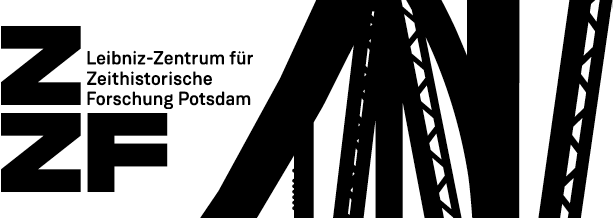16th Ravensbrück European Summer School: Witnessed Memory. Narrating. Preserving. Passing on.
Organisation: Memorial Museum Ravensbrück, Leibniz-Center for Contemporary History Potsdam, Leibniz-Research Network "Wert der Vergangenheit" and Center for Research on Anti-Semitism (TU Berlin)
The testimony of survivor witnesses is an integral part of the historical and educational work at memorial sites. However, has this seemingly self-evident fact always been common practice? Should the role of the survivor witness itself be historicized given the changes in the cultures of remembrance since 1945? And how can the postulate of critical reflection in educational work be balanced with the conception of the witness as a moral authority? This year’s Summer University will address this area of tension between the witness, testimony, and historical and pedagogical conveyance. Thereby, changes in the meaning of testimony, its use in memorial education as well as current digital approaches to the presentation of eyewitnesses will be explored. The Ravensbrück Summer University is characterized by its emphasis on women’s and gender history.
The European Summer University Ravensbrück takes place every year during the last week of August as an cross-generation conference at the memorial site. It is aimed at an interdisciplinary group of participants consisting of students, scholars, facilitators of historical-political education and other interested parties. The multifaceted program includes lectures, guided tours and workshops, as well as film screenings and performances.
The event takes up current subjects from historical studies and discourses on the culture of remembrance. The programmatic framework is based on the following three key issues: National Socialist rule in Europe, women's and gender history, and the critical examination of the history of European remembrance, always with regard to the special history of the Ravensbrück concentration camp. The aim is to exchange on and link scientific research at concentration camp memorials with universities and research institutions. The event aims to promote a professional exchange and networking on a regional, national and international level. Special attention is given to the encouragement of young scholars, who are invited to present their current theses in the context of a research forum.
The European Summer University is conceptualized by a project group, which is newly constituted each year depending on the topic. This volunteer group of scholars develops the thematic focus, recommends speakers and is involved in the moderation of the individual events within the program of the Summer University.
The event is sponsored by the MWFK, the German Foreign Office, the Mercedes Benz Group, the Alfred-Landecker Foundation and the Kulturförderung Oberhavel.
Participation in the European Summer University is free of charge. The conference languages are German and English. Simultaneous translation throughout the conference will be provided. The event is recognised as “Bildungsurlaub” in Berlin-Brandenburg.
Registration is open until 7 August 2023 under: https://bit.ly/3In6Nz9
Program:
Monday, August 28th
Opening Event
10:00 a.m.
Guided Tours at the Ravensbrück Memorial
12:30 a.m.
Lunch
1:30 p.m.
Andrea Genest: Introduction to the Summer University
2:00 p.m.
Opening Discussion Talk with Ib Katznelson, survivor of Ravensbrück, Copenhagen
4:00 p.m.
Research Forum
Chair: Kolja Buchmeier & Marcus Funck
7:00 p.m.
Get-Together
Tuesday, August 29th
Theoretical Foundations of Testimony
Chair: Elizabeth Harvey
9:00 a.m.
Cornelia von Einem, Berlin: Witness, Witnessing and Testimony
10:00 a.m.
Aurélia Kalisky, Berlin: Literature and Testimony
11:15 a.m.
Daniel Schuch, Jena: Transformation of Testimony
12:30 p.m.
Lunch
3:00 p.m.
Advanced Workshops
6:00 p.m.
Dinner
Wednesday, August 30th
Concepts and Functions of Testimony
Chair: Thomas Schaarschmidt
9:00 a.m.
Dialogic Tours: Approaches to testimony at Ravensbrück Memorial
12:30 p.m.
Lunch
3:00 p.m.
Roland Borchers, Berlin: Memory on the Individual and Collective Level. How do Eyewitnesses remember Forced Labour and How do they interpret it today?
4:00 p.m.
Dorothee Wierling, Hamburg: Testimony and Oral History
5:00 p.m.
Discussion
6:30 p.m.
Dinner
7:00 p.m.
Film and Discussion with Loretta Walz, Dusseldorf: The Ravensbrück Memory - on the Changing of Narratives (1980s to 2010s)
Thursday, August 31st
Transformations of Mediality
Chair: Achim Saupe
9:00 a.m.
Alina Bothe, Berlin: Memory in the Digital Age
10:00 a.m.
Anja Ballis, Munich: Contemporary Witnesses in the “Media Network of Memory”: Current Developments, Empirical Findings, Ethical Considerations
11:15 a.m. Tobias Ebbrecht-Hartmann, Berlin: Witnessing in the Digital Age: Media and Historiographical Perspectives
12:30 p.m.
Lunch
3:00 p.m.
Workshop of Digital Applications (spur.lab)
5:00 p.m.
Discussion
6:00 p.m.
Dinner
7:00 p.m.
Panel Discussion: Witnesses in Nazi Trials with Thomas Walther, Lindenberg, Astrid Ley, Oranienburg and Katharina Stengel, Frankfurt
Chair: Stephanie Bohra
Friday, September 1st
Summary & Outlook
10:00 a.m.
Elke Gryglewski, Celle: Quo vadis: The Future of Testimony at Memorial Sites, followed by Final Discussion
Chair: Andrea Genest
11:30 a.m.
Critical Friends
Chair: Thomas Schaarschmidt
Departure after lunch
Veranstaltungsort
Memorial Museum Ravensbrück
Straße der Nationen
16798 Fürstenberg/Havel
Kontakt und Anmeldung
Aliena Stürzer
Memorial Museum Ravensbrück
Straße der Nationen
16798 Fürstenberg/Havel
Telefon: +49 33093 608 25
stuerzer [at] ravensbrueck.de
Contact for the ZZF:
Prof. Dr. Thomas Schaarschmidt
Leibniz-Center for Contemporary History Potsdam
Am Neuen Markt 1
14467 Potsdam
Office: Am Neuen Markt 1, Raum 0.18
Tel.: 0331/28991-25
Fax: 0331/28991-40
E-Mail: schaarschmidt [at] zzf-potsdam.de

